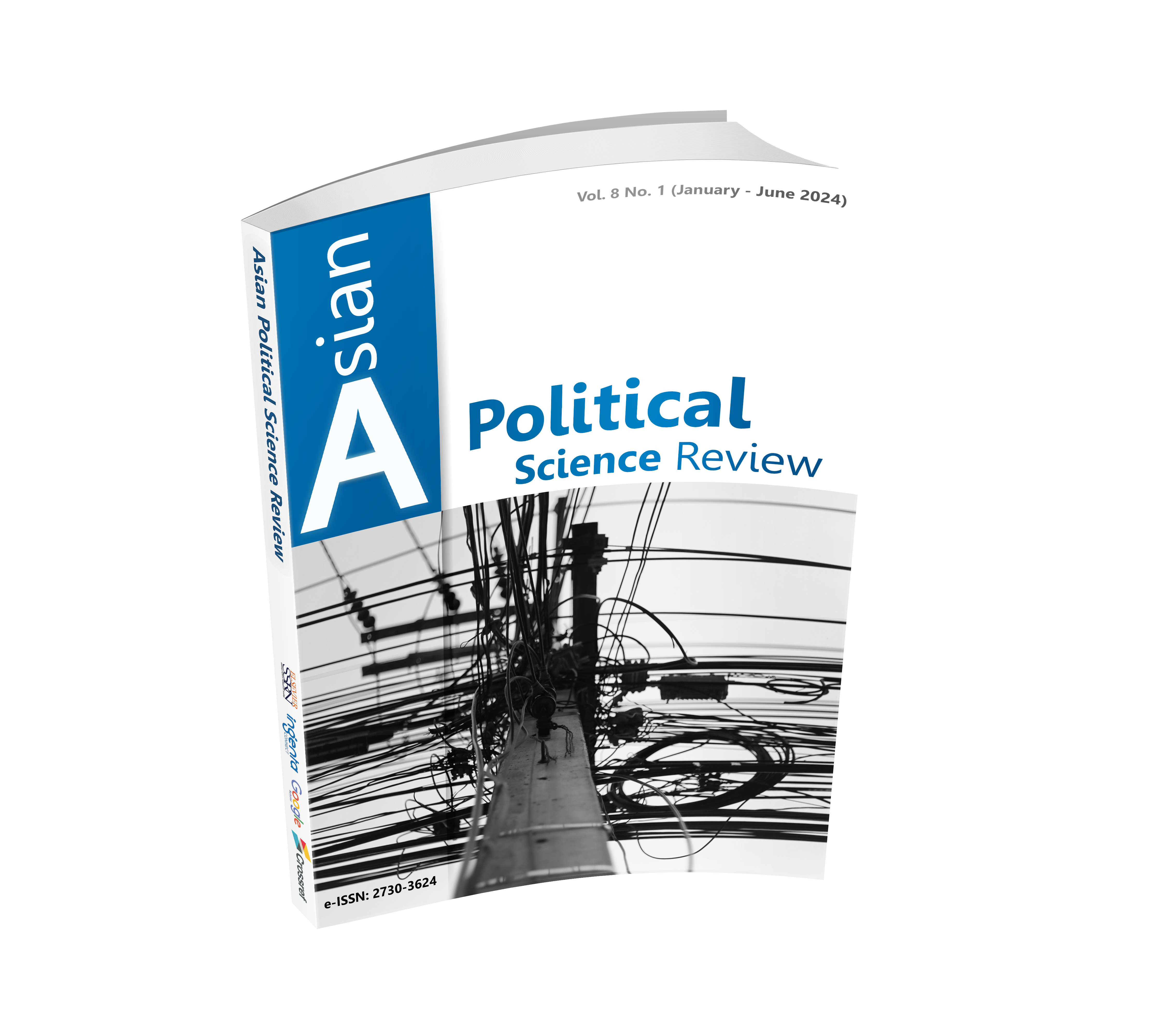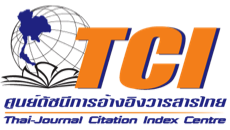DRIVING COMMUNITY ENTERPRISES TO CREATE A SUSTAINABLE GRASSROOTS ECONOMY IN THAILAND
DOI:
https://doi.org/10.14456/apsr.2024.3Keywords:
Community Enterprises, Sustainable Grassroots Economy, Foundation EconomyAbstract
This study aims to explain driving community enterprises to create a sustainable grassroots economy in Thailand. At present, 1) the development of community potential is driven by an emphasis on building a strong and sustainable grassroots economy, community participation, community self-reliance in the long term, empowerment, reform for equality and growth with participation, and strengthening the financial institutions in the community. 2) The promotion of community learning processes is driven by stimulating, promoting, and supporting the community learning processes along with the development of knowledge, skills, attitudes, training, and adaptation learning processes. 3) The promotion of community knowledge is driven by seeking, collecting, and disseminating community knowledge for further development to drive knowledge management, wisdom, and exchange of knowledge, leading to the development of a community network to develop and change communities. Way of thinking and doing are based on a sufficiency economy. The community learning center is promoted to create ongoing activities, knowledge, and understanding in community development through various community learning processes. 4) The mechanism for community economic development is driven by the development of the potential of community leaders, groups, networks, economic relationships, and social potential in local communities.
Downloads
References
Anusonphat, N., & Leenawrat, I. (2021). Development of Self-Sufficiency Community Economy on Basis of Community Democracy. Journal of MCU Nakhondhat, 8(12), 204-217.
Anusonphat, N., & Poompurk, C. (2022). New Normal Ways for the Survival and Adaptation of Community Enterprise after COVID-19 Crisis of Thailand. Journal of MCU Nakhondhat, 9(1), 1-19.
Armstrong, R. (2012). An Analysis of the Conditions for Success of Community-Based Tourism Enterprises. New South Wales: International Centre for Responsible Tourism Australia.
Chaipipat, S. (2023). Local Community Potential and Local Community Self-management. Lopburi: Ban Maka Subdistrict Administrative Organization.
Community Development Department. (2016). Community Knowledge Management Handbook. Bangkok: Community Development Department.
Community Organizations Development Institute. (2020). Grassroots Economy. Retrieved from https://web.codi.or.th/development_project/20201125-20029/.
Duereh, A. (2023). Opinions of Villagers in the Community about Development Policy: Grassroots Economy for Sustainable Development. Retrieved from www.sdgmove.com/2023/01/24/opinions-on-sustainable-grassroot-economic-development-policy/.
Frey, B., Lüthi, R., & Osterloh, M. (2012). Community Enterprises—An Institutional Innovation. Managerial and Decision Economics, 33(5/6), 427-439.
Katchwattana, P. (2021). Boosting Community Enterprises throughout Thailand to Strengthen the Grassroots Economy to Deal with All Crises. Retrieved from www.salika.co/2021/02/13/community-enterprises-solution-for-fight-covid/.
Kotchaseni, W. (2023). Driving the Development of Community Potential by Strengthening the Thai Community. Buriram: Buriram Provincial Public Relations Office.
Matthews, T., Whittaker, S., Badenes, H., Smith, B., Muller, M., Ehrlich, K., Zhou, M., & Lau, T. (2013). Community insights: helping community leaders enhance the value of enterprise online communities. A paper presented at the 13th CHI Conference on Human Factors in Computing Systems, Paris, France.
Ministry of Economy, Trade and Industry. (2007). One Village, One Product: OVOP. Tokyo: Ministry of Economy, Trade and Industry.
Mukai, K., & Fujikura, R. (2015). One village one product: evaluations and lessons learnt from OVOP aid projects. Development in Practice, 25(3), 389-400.
Noranat, N. (2023). Community Empowerment Toward Sustainable Equality. Retrieved from https://mgronline.com/daily/detail/9610000037281.
Olszak, C., & Ziemba, E. (2012). Critical Success Factors for Implementing Business Intelligence Systems in Small and Medium Enterprises on the Example of Upper Silesia, Poland. Interdisciplinary Journal of Information, Knowledge, and Management, 7, 129-150.
Panyasit, S. (2019). Community Enterprises to Drive the Grassroots Economy. Retrieved from www.bangkokbanksme.com/en/community-otop.
Pettinger, R. (2016). The Business of Business: The Context of Organisation and Commercial Development. Procedia - Social and Behavioral Sciences, 221, 11-20.
Pitithanabodee, N., & Anusonphat, N. (2022). Forms of Community Tourism on the New Way of Learning During the Situation of COVID 19 Transmission. Journal of Public Administration and Social Management, 4(2), 60-72.
Roadkaew, K., Senanuch, P., & Jundai, R. (2021). Research on Opinions on Sustainable Grassroot Economic Development Policy. King Prajadhipok’s Institute Journal, 19(1), 48-66.
Stacey, R. (2000). The Emergence of Knowledge in Organization. Emergence, 2(4), 23-39.
Stoian, D., & Donovan, J. (2010). Poverty-environment dividends of rural community enterprises: insights from a cross-sectoral study in Latin America and the Caribbean. Turrialba: Tropical Agricultural Research and Higher Education Center.
Thammasat University. (2020). Community Potential Development by Educational Institutions. Bangkok: Thammasat University.
Tossawut, T. (2023). Social Development According to the Direction of Driving the Government Action Plan of Thailand. Journal of Administrative and Management Innovation, 11(1), 150-164.
Trade Policy and Strategy Office. (2023). Community Branding to Strengthen the Grassroots Economy. Bangkok: Trade Policy and Strategy Office.

Downloads
Published
How to Cite
Issue
Section
License
Copyright (c) 2023 Authors

This work is licensed under a Creative Commons Attribution-NonCommercial-NoDerivatives 4.0 International License.











.png)


